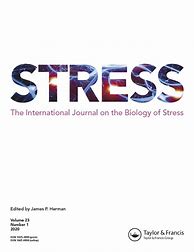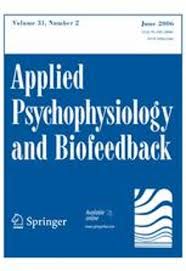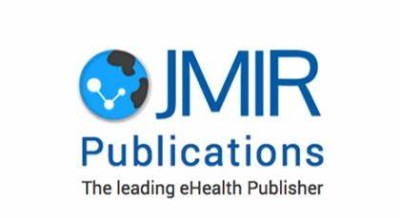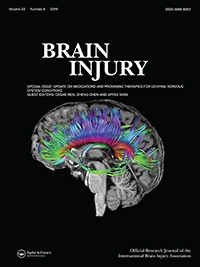Research Library
You can search for publications by selecting a category or keyword. All publications containing the selected category or keyword will be displayed below.
Categories
Keywords
Categories
Keywords
- Show all
- ADHD
- Anxiety/Panic
- Burnout
- Cancer
- Cardiovascular disease
- Chronic pain
- Cognitive function
- Cortisol/DHEA
- Costs
- Dementia
- Depressie
- Diabetes
- Global Coherence
- Hypertension
- Intuition & Consiousness
- Kids/Youth
- Leadership
- Meditation/Mindfulness
- Metabolic Syndrome
- Obesity/Eating disorder
- Pregnancy
- PTSD
- Resilience
- Schizophrenia
- Science HRV & Coherence
- Sleep quality & fatigue
- Social Coherence
- Stress
Heart Rate Variability Biofeedback Training Can Improve Menopausal Symptoms and Psychological Well-Being in Women with a Diagnosis of Primary Breast Cancer: A Longitudinal Randomized Controlled Trial

Abstract: Breast cancer survivors experience numerous chronic symptoms linked to autonomic dysfunction including anxiety, stress, insomnia, menopausal symptoms, and cognitive impairment. Effective non-pharmacological solutions to address these are currently lacking. Methods: Our three-armed longitudinal randomized controlled trial assessed the effectiveness of a 4-week remote smartphone-based heart rate variability biofeedback intervention which involved daily paced breathing at 6 breaths p/min; active (12 breaths p/min) and waitlist
read more...Practice effects of a breathing technique on pilots’ cognitive and stress associated heart rate variability during flight operations

Commercial pilots endure multiple stressors in their daily and occupational lives which are detrimental to psychological well-being and cognitive functioning. the Quick coherence technique (Qct) is an effective intervention tool to improve stress resilience and psychophysiological balance based on a five-minute paced breathing exercise with heart rate variability (hRV) biofeedback. the
current research reports on the application of Qct training within an international airline to improve commercial pilots’ psychological health
Short-Term Effects of Heart Rate Variability Biofeedback on Working Memory

Drawing upon the well-documented impact of long-term heart rate variability biofeedback (HRVB) on psychophysiological responses, this study seeks to explore the short-term effects arising from a single HRVB session during and after paced breathing exercise. The research aligns with the neurovisceral integration model, emphasizing the link between heart rate variability (HRV) levels and cognitive performance. Therefore, a randomized controlled trial employing a between-subjects design was conducted with 38 participants. Each
read more...Psychophysiological coherence training to moderate air traffic controllers’ fatigue on rotating roster

The nature of the current rotating roster, providing 24-h air traffic services over five irregular shifts, leads to accumulated fatigue which impairs air traffic controllers’ cognitive function and task performance. It is imperative to develop an effective fatigue risk management system to improve aviation safety based upon scientific approaches. Two empirical studies were conducted to address this issue. Study 1 investigated the mixed effect of circadian rhythm disorders and resource depletion on controllers’ accumulated fatigue. Then, study 2 proposed a potential biofeedback solution of quick coherence technique which can mitigate air traffic controllers’ (ATCOs’) fatigue while on
read more...Heart Rate Variability Biofeedback to Treat Anxiety in Young People With Autism Spectrum Disorder: Findings From a Home-Based Pilot Study

Background: People with autism spectrum disorder (ASD) frequently experience high levels of anxiety. Despite this, many clinical settings do not provide specialist ASD mental health services, and demand for professional support frequently outstrips supply. Across many sectors of health, investigators have explored digital health solutions to mitigate demand and extend the reach of professional practice beyond traditional clinical settings.
read more...
Does Heart Rate Variability Biofeedback Enhance Executive Functions Across the Lifespan? A Systematic Review

Abstract
The scope of this systematic review was to summarize the existing literature on the effects of heart rate variability biofeedback (HRV-BF) on executive functions (EFs) across the lifespan. Specifically, it aimed to investigate the factors that may affect the efficacy of HRV-BF interventions, such as the study population, duration and intensity of the intervention, or the technical equipment. This review was conducted according to the Preferred Reporting Items for Systematic Reviews and Meta-Analyses (PRISMA) guidelines. Studies that
Emotion Regulation After Acquired Brain Injury: A Study of Heart Rate Variability, Attentional Control, and Psychophysiology

Primary Objective: To examine the efficacy of heart rate variability biofeedback (HRV-BF) to treat emotional dysregulation in persons with acquired brain injury.
Design: A secondary analysis of a quasi-experimental study which enrolled 13 individuals with severe chronic acquired brain injury participating in a community-based programme. Response-to-treatment was measured with two HRV resonance indices (low frequency
Coherence training in children with attention-deficit hyperactivity disorder: cognitive functions and behavioral changes

Attention-deficit hyperactivity disorder (ADHD) is the most prevalent behavioral diagnosis in children, with an estimated 500000 children affected in the United Kingdom alone. The need for an appropriate and effective intervention for children with ADHD is a growing concern for educators and child-care agencies. This randomized controlled clinical trial evaluated the impact of the HeartMath self-regulation skills and coherence training program (Institute of HeartMath, Boulder Creek, California) on a population of 38 children with ADHD in
read more...Cardiac Coherence and Posttraumatic Stress Disorder in Combat Veterans

Background • The need for treatment of posttraumatic stress disorder (PTSD) among combat veterans returning from Afghanistan and Iraq is a growing concern. PTSD has been associated with reduced cardiac coherence (an indicator of heart rate variability [HRV]) and deficits in early stage information processing (attention and immediate memory) in different studies. However, the co-occurrence of reduced coherence and cognition in combat veterans with PTSD has not been studied before. Primary Study Objective • A pilot study was
read more...